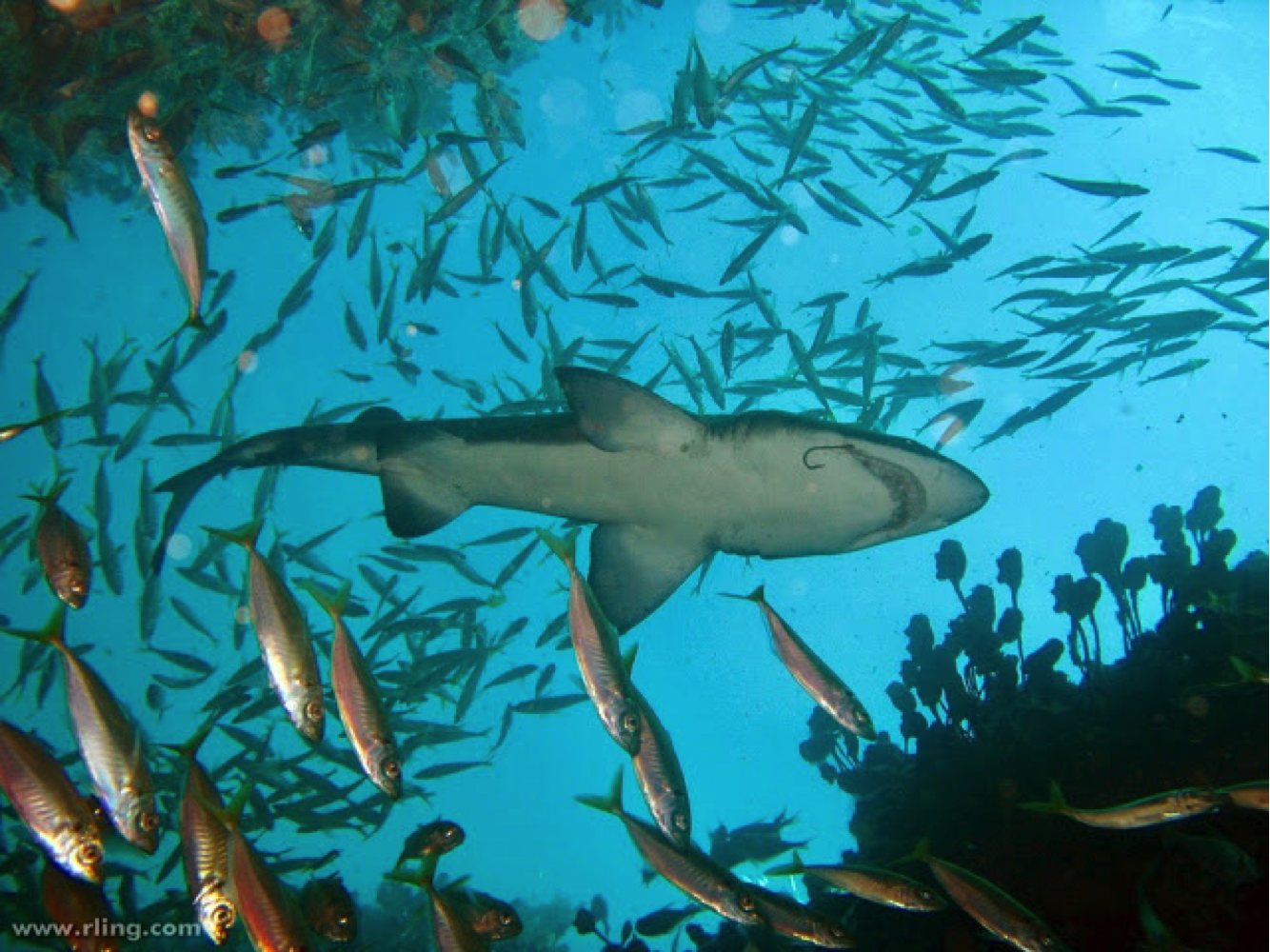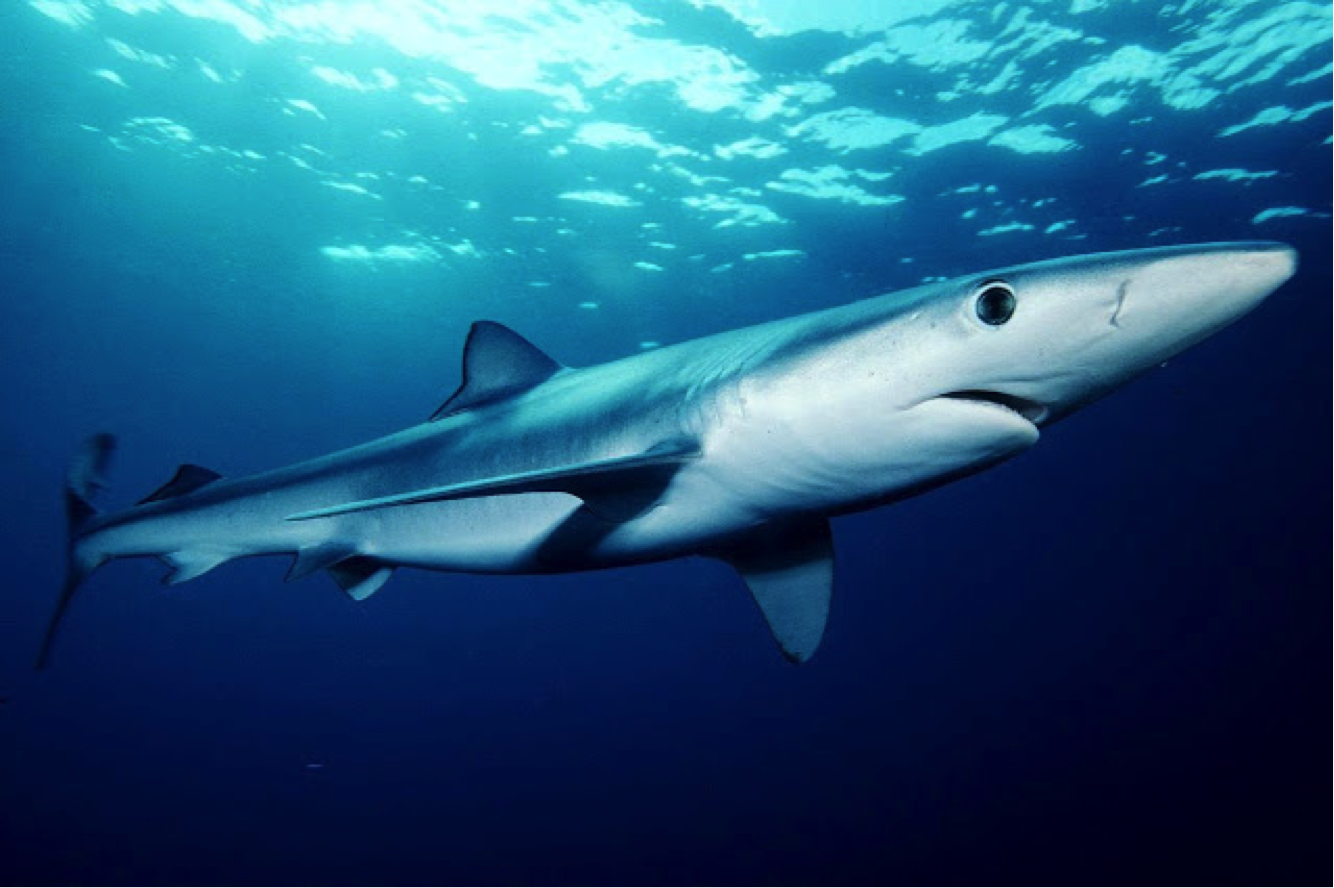
The grey nurse shark ( Carcharias taurus), a coastal species on the ICU's Red List as critically endangered. A public domain photo by Richard Ling.
Here's how sharks are "finned."
After hauling them aboard their vessels, the fishermen cut off their fins, then toss them back into the ocean. Still alive, they sink to the bottom where they're either eaten by other predators or die of suffocation.
About 100 million sharks are believed to be taken by fishers each year, most of them for their fins alone.
It's an industry estimated to be worth US$400 million a year.

The blue shark (Prionaceglauca). Photo by Mark Conlin/NMFS.
If one were to believe official trade records over the past twenty years, most fins traded on world markets have come from more abundant "pelagic" species (ones which live in the open ocean) like the blue shark (above).

The leopard shark (Stegostoma fasciatum). An ADV photo by Jeffrey N. Jeffords.
Using advanced techniques in barcoding and genetic tracing, scientists are now painting a different picture. By analyzing more than five thousand fins from markets on three continents, they still found a lot had come for those "pelagic" populations.
But they also found "an additional 40 'range-restricted' coastal species" which did not show up in previous records. These populations live closer to shore and do not range as widely as those in the open oceans. With local jurisdictions providing little protection for them, their populations now face "dramatic declines" and are "typically less abundant."
However, even the more common deep-sea species have been falling victim to "chronic exploitation" by fishers who are "collapsing" their populations, too.

New DNA tracking techniques are revealing a greater number of threatened and coastal sharks from stockpiles of intact shark and processed fins (pictured). Image credit: Paul Hilton.
So, if we want to conserve sharks and curb the "unsustainable global trade in shark fins," conclude the researchers, "stronger local controls of coastal fishing are urgently needed."
Their study was published this summer in the proceedings of The Royal Society.
But this is hardly the first cautionary tale pointing to the plight of Earth's marine life in general and sharks, in particular. Another research paper published in 2017 warns, they face "possibly the largest crisis of their 420 million year history. Many populations are overfished to the point where global catch peaked in 2003, and a quarter of species have an elevated risk of extinction."
Resources:
By: Larry Powell

Hi, I’m Larry Powell, an eco-journalist living in Shoal Lake, Manitoba, Canada.
I belong to The Science Writers & Communicators of Canada, The American Association for the Advancement of Science and The Canadian Association of Journalists.
I’m authorized to receive embargoed material through the Science Media Centre of Canada, the Royal Society, NatureResearch and the World Health Organization.
This allows me to “get a jump” on important stories by fleshing them out with fact-checks and interviews, in advance. This often arms me with “hot-off-the-press” stories the moment the embargo is lifted.
This summer, I joined an international team of writers, telling animal “tails” in the online journal, “Focusing on Wildlife - Celebrating the Biodiversity of Planet Earth.”
I publish the blog, PlanetInPeril (PinP), where science gets respect! You can email me at: PlanetWatch1@yahoo.ca.
